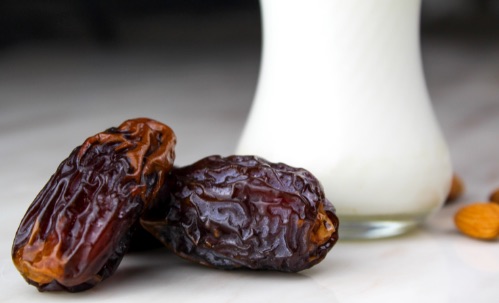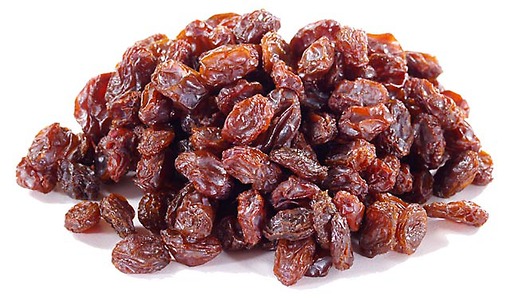Male infertility is a prevalent health concern, affecting approximately 7% of men globally. It refers to a male’s inability to cause pregnancy in a fertile female, typically linked to issues with sperm production, function or delivery. While many perceive infertility as primarily a female issue, male factors contribute to about half of all cases. Problems may range from low sperm count or poor sperm mobility to more complex genetic disorders. Factors like lifestyle choices, environmental exposure, and aging also play significant roles. Despite the physical implications, male infertility also exerts a psychological impact, often leading to stress and negatively affecting self-esteem.
Ayurveda gives utmost importance to the reproductive health of men and women as they have to procreate healthy offspring. Ayurveda Acharyas have recommended various treatments and medicines for male infertility.
Table of content
Causes of male infertility according to Ayurveda
Ayurvedic treatment for male infertility
Ayurvedic Medicines for male infertility
Ayurvedic diet and lifestyle to boost male fertility.
Home Remedies to improve sperm count and motility.
Causes of Male Infertility – According to Ayurveda
According to ayurveda acharyas, male infertility occurs when the health of the shukra dhatu dips. Low-quality shukra dhatu causes male infertility by reducing the quality and quantity of semen. This causes low sperm count, low motility, and unhealthy sperm.
A word about shukra dhatu-
Shukra dhatu, often referred to in Ayurveda as the essence of all body tissues, is of paramount importance for men. Literally translating to “semen” or “reproductive tissue” in Sanskrit, shukra dhatu plays a pivotal role in reproductive health and overall vitality. It is the final tissue in the dhatu (tissue) formation cycle, indicating its refined nature. This tissue is not just linked to procreation, but also to joy, enthusiasm, and general vitality.
For men, a balanced shukra dhatu signifies optimal physical health, vigor, and fertility. It’s the embodiment of a man’s strength and virility. However, its significance transcends just the physical realm. A harmonized shukra dhatu is also indicative of a clear mind, emotional stability, and spiritual upliftment.
Moreover, in Ayurveda, an imbalance or depletion in shukra dhatu can lead to a myriad of health issues, ranging from infertility to reduced vitality. Thus, maintaining its balance is key to ensuring holistic well-being for men.
Acharya Charaka in his Ayurvedic text, mentions the following factors as causes for diminishing quality and quantity of shukradhatu.
Jaraayaa Chintaaya shukram vyadhibhihi karmakarshanaat |
Kshayam gacchatyanashanaat sthreenaam chaatinishevanaath ||
- Old age
- Stress, anxiety, and Worry
- Diseases
- Exertion
- Fasting
- Overindulgence in a sexual act
- Grief
- Strained relationship.
Apart from these, Addiction to tobacco, alcohol, and drugs can also cause male infertility. Obesity and Diabetes both have a strong link to low sperm count and motility.
Ayurvedic Treatment for male infertility
Texts of Ayurveda explain various treatments to boost the fertility of men. Among them vajikarana therapy and panchakarma therapy are important.
Vajikarana Therapy
Maintenance of good health by following a healthy lifestyle and diet retards the aging process. The rate of fertilization starts falling down for men who are above 40.
The fertility in women decreases as their age progress. In the same way, sperm quality and motility in men reduce as their age progress. The aging process in men can be slowed down by using ayurvedic Vajikarana therapy. Ayurveda Vajikarana therapy rejuvenates the male reproductive system and slows down the aging process. It also increases the quality and quantity of sperm thus increasing sperm count and sperm motility naturally
Hence “ Vajikarana Therapy Kit or medicines” are recommended in Ayurveda for men who are above 20 and below 70 to maintain optimum sexual activity and a number of healthy sperms. Vajikarana therapy increases sperm count, sperm motility, and quantity of semen. This therapy is helpful in erectile dysfunction or klaibya. Consult Dr.Savitha Suri to get the vajikarana therapy kit formulated according to your Prakriti, so that you can do the vajikarana therapy at home.
Panchakarma Treatment for Male Infertility
Reference https://www.ncbi.nlm.nih.gov/pmc/articles/PMC5688833/
When male infertility does not respond to normal oral medicines, then an ayurvedic physician may opt for panchakarma therapy. Panchakarma therapy is an Ayurvedic detoxification treatment. Through this process, the sticky body toxin or “ama” is eliminated from the body by 5 types of processes. According to the principles of Ayurveda, “ama” is generated by practicing an unhealthy diet and lifestyle which are not suitable for one’s constitution or Prakriti. This body toxin which is sticky in nature blocks the minute srotas or micro-channels of the body. This blockage disrupts normal body function and can cause low sperm count and motility.
Panchakarma treatment eliminates ama not only from the body but also from the male reproductive system. Administering ayurvedic medicines after detoxification helps herbs to reach target tissues.
Usually, the following procedures are chosen ayurvedic detoxification therapy or panchakarma therapy for male infertility.
- Vamana – (Emesis Therapy),
- Virechana – (Purgation Therapy),
- Vrushya Basti- Aphrodisiac Enema Therapy,
- Uttara Basti – Administering medicines through the urethra for men and through the cervix for women,
- Shiro dhara – Stress Relieving Therapy
But it is left to the consultant ayurvedic doctor to determine the suitable methods after analyzing the constitution or prakruti of the patient.
Ayurvedic Herbs , Medicines For Male Infertility
Texts of Ayurveda recommend various Ayurvedic herbs and medicines for male infertility. Among them, the following are very important.
Ashwagandha :
This herb is also known as Indian ginseng. Ashwagnadha is eulogized as “ati shukrala” which means it strengthens shukra dhatu by leaps and bounds. The root of ashwagandha is used for medicinal purposes. Ashwagandha Root Powder Can be consumed with milk or water or in the form of Vajikarana Rasayana
Padma Beeja or Lotus Seeds
Lotus seeds or padma beeja are seeds of nelumbo nucifera, another highly praised herb that is used in ayurvedic treatment for male infertility.
Gokshura or Tribulus
Gokshura or Tribulus is known for its testosterone-enhancing properties. This herb is helpful in male infertility caused due to a low level of testosterone. This testosterone-boosting Ayurvedic medicine is highly eulogized in Ayurveda for its aphrodisiac properties.
Kapikacchu or Mucuna
Kapikacchu or mucuna or Kaunch is another ayurvedic aphrodisiac herb. Ayurveda vaidyas prefer to use this herb in male infertility cases. It not only helps to boost sperm count and motility but also enhances mood.
Safed Musli
Safed Musli also known as shweta musli or white musli is widely used in ayurvedic preparations to boost men’s health. Various research points towards the effectiveness of this herb in improving male fertility.
Vidarikand
Vidarikand (Pueraria tuberosa) is a revered herb in the traditional Ayurvedic system of medicine, often hailed for its rejuvenating and nourishing properties. Specifically concerning male infertility, Vidarikand stands out due to its potential benefits in enhancing virility and improving reproductive health.
A natural aphrodisiac, Vidarikand is believed to strengthen the Shukra Dhatu (reproductive tissue) in men. It works by potentially improving the quality and quantity of semen, enhancing sperm motility, and reducing oxidative stress in the seminal fluid. The herb is rich in flavonoids, glycosides, and sterols which are the compounds responsible for its restorative properties.
Moreover, Vidarikand also offers an adaptogenic function. It aids in combating stress, which is a notable factor in contemporary male infertility issues. Stress can adversely affect testosterone levels and sperm production. By moderating stress and improving overall vitality, Vidarikand indirectly supports male reproductive health.
Shilajit
Shilajit, often dubbed “conqueror of mountains” and “destroyer of weakness”, is a sticky resinous substance primarily sourced from the rocky mountains of the Himalayas. Revered in traditional Ayurvedic medicine, Shilajit has long been used as an adaptogen and rejuvenating agent, and one of its standout applications is in the treatment of male infertility.
Studies suggest that Shilajit can enhance both the quality and quantity of sperm. Key compounds in Shilajit, such as fulvic acid and a suite of minerals, contribute to its antioxidant properties, which can combat oxidative stress—a leading contributor to impaired sperm function. Additionally, its mineral-rich composition promotes improved testosterone levels, enhancing both libido and stamina.
Furthermore, Shilajit’s adaptogenic nature can mitigate stress, which is often an overlooked factor impacting male infertility. By balancing cortisol levels, it supports optimal gonad function. In essence, incorporating Shilajit into wellness routines offers men a holistic approach to boost fertility by addressing both physiological and psychological aspects of reproductive health.
Caution: Always use Ayurvedic herbs after consulting a qualified Ayurvedic doctor.
Ayurvedic Diet and Lifestyle to boost male fertility
Ayurvedic diets and lifestyles known as ahara and vihar greatly affect fertility in individuals. Here are some tips to boost fertility in men.
Ayurvedic Food and Diet
Eat Naturally:
Eat “naturally from the earth” and get plenty of fresh vegetables, fruits, whole grains, fish, poultry, legumes, nuts, brown rice and seeds. Strictly avoid junk food, processed food and foods high in saturated fat. Avoid spicy and bitter foods.
Dry Fruits and Nuts Help to increase sperm count. Munch some dry fruits like raisins, dates, figs, walnuts etc. These are high in antioxidants and also boost male health. They provide the nutrients required for healthy sperm production
Fresh fruits like Banana, apples, grapes, amla, Mango, watermelon etc improve sperm health
Drink Plenty of Water:
Keep your body well hydrated. Drink plenty of water at least 2 -3 litres a day to flush out any toxins in the body. Water also provides the medium for the fluid part i.e semen for sperms to swim easily and derive nutrients for survival.
Pumpkin seeds:
Great food for male fertility, as they contain high levels of zinc and essential fatty acids which are vital to the healthy functioning of the male reproductive system.
Omega fatty acids:
Omega 3 fatty acids (found in oily fish and flaxseed oils) and omega-6 fatty acids (evening primrose and starflower oils) can help improve sperm membrane fluidity and male fertility.
Ginseng (Panax ginseng):
This herb is used in Chinese medicine for thousands of years and is popular worldwide to help increase testosterone levels and sperm count and improve the quality of sperm.
Ayurvedic Lifestyles to increase sperm count
Avoid Overheating of Testicles
Avoiding overheating of testicles helps to increase sperm count. Washing testicles with cold water after a bath help to increase sperm count and sperm motility.
Avoid bicycle riding as it may cause trauma to the testicles.
Pay Attention to Weight Loss
Obesity may cause low testosterone. Weight reduction helps to reverse this condition. Increased testosterone increases sperm count.
Overweighted persons who sit for long hours are advised to take a break in between and walk around for 10 – 15 minutes. This helps to increase sperm count and reduce weight. Walking is the best way to shred fat and improve the count of sperm swimmers.
Abhyanga – Oil Massage Body Twice in a Week
Massaging the body with herbal oil is known as Abhyanga. Regularly massage your body with herbal oil like ksheerabala tailam or sesame oil. Abhyanga retards the aging process, increases libido, enhances blood circulation, strengthens the muscles, and boosts health.
Follow Ayurvedic Routines
Following Dinacharya (ayurvedic daily routine) and Ritucharya (ayurvedic Seasonal routine), helps to manage a good lifestyle. These routines also help to keep addictions at bay.
Alcohol, marijuana, and tobacco reduce sperm count and sperm motility by 50%. Keeping away from these addictions helps to increase sperm count and sperm motility.
Psychological factors like stress, worry, and strain can reduce sperm count. Put a stop to these factors by adopting yoga and meditation in your daily routine. Yoga and meditation are the best stress busters. Lessening these psychological factors help to boost sperm count.
Avoid Very Frequent Ejaculations
Frequent ejaculation of semen can cause low sperm count. Hence avoid very frequent sex and masturbation. Giving a gap of 3-4 days between 2 consecutive ejaculations helps to increase sperm count.
Keep Constipation (malabaddhata) at Bay
The toxin ama, which is formed due to indigestion may block the channels (srotas) which carry semen (shukra ) and reduce sperm count. Ama also imbalances Vayu or Vata dosha which in turn imbalances male hormone levels in the blood. Hence stay away from foods that cause constipation and indigestion (Read Ayurvedic Treatments and Home Remedies for Indigestion), to keep the sperm count in the normal range. The above mention methods are the best answers to your question about how to increase sperm count naturally.
Home Remedies to improve sperm count and motility.
Boosting fertility is a concern for many individuals and couples. While medical interventions and treatments exist, there are also numerous home remedies that can play a role in enhancing reproductive health. Here are some strategies to consider:
Dietary Choices:
A balanced diet can have a significant impact on reproductive health. Foods rich in antioxidants, such as fruits and vegetables, help counteract oxidative stress, which could damage sperm. Omega-3 fatty acids, found in foods like flaxseeds, walnuts, and fatty fish, can support sperm structure and function.
Regular Exercise
Regular physical activity can boost testosterone levels and improve the health of the reproductive system. It’s essential to strike a balance, however; excessive exercise, particularly in conjunction with a restrictive diet, might reduce testosterone.
Manage Stress
Chronic stress can decrease testosterone and reduce overall reproductive health. Mindfulness practices, such as meditation, deep breathing exercises, and yoga, can alleviate stress and promote a sense of well-being.
Maintain a Healthy Weight
Being either overweight or underweight can influence testosterone levels and sperm quality. Ensuring you are at a healthy weight through balanced eating and regular activity can help maintain optimal reproductive health.
Avoid Overheating
Excessive heat can impair sperm function. Regularly using hot tubs or saunas might affect sperm count. Even prolonged sitting or wearing tight clothing can raise the temperature in the groin area, affecting sperm production.
Limit Alcohol and Caffeine
Excessive alcohol consumption can reduce testosterone levels and deteriorate the quality and quantity of sperm. Likewise, while moderate coffee consumption isn’t likely to harm reproductive health, excessive caffeine intake might be linked to a higher risk of multiple reproductive issues.
Stay Hydrated
Water plays a critical role in all our bodily functions, including the production of sperm. Ensure you are drinking adequate amounts daily to keep your body hydrated and functioning optimally.
Avoid Environmental Toxins
Exposure to certain chemicals and metals can affect reproductive health. It’s beneficial to be aware of your environment, limit exposure to toxins, and always use protective equipment when necessary.
Ensure Adequate Sleep
Quality sleep is crucial for testosterone production, which follows a daily rhythm. Testosterone levels rise during sleep and decrease over the waking hours. Therefore, ensuring you get enough restorative sleep is crucial.
Limit Radiation Exposure
Prolonged exposure to radiation from electronic devices might influence sperm quality. While more research is needed, it might be wise to not carry cell phones in front pockets or use laptops directly on the lap for extended periods.
Author – Dr.Savitha Suri. Consultant ayurvedic physician.
Related Articles
Low Testosterone – Causes, Symptoms, Ayurvedic Treatment and Booster Herbs.
Ayurvedic Medicine for ED and PE







Pingback: Low Testosterone – Causes, Symptoms, Ayurvedic Treatment and Booster Herbs.
Pingback: How to Detox Male Reproductive System ? Ayurvedic Way
Pingback: Is Soy or Soya Bean Bad for Male Fertility ?- Ayurveda View
Pingback: Health Benefits and Uses of Pomegranate, Its Peel and Juice
Pingback: Shilajit Uses for PCOS, Erectile Dysfunction and Weight Loss
Pingback: Ayurveda Shukra Dhatu
Pingback: Ayurveda Vajikarana Therapy
Pingback: Vajikarana Medicines and Vitality Herbs - Ayurveda Remedies, Tips and Treatment
Pingback: Vajikarana Foods
Pingback: Health Benefits of Coriander/cilantro, seeds, leaves,
Pingback: Health Benefits of Green Gram - Moong/dal/sprouts- Vigna radiata (mung)
Pingback: Best Dry Fruits to Increase Sperm Count male fertility